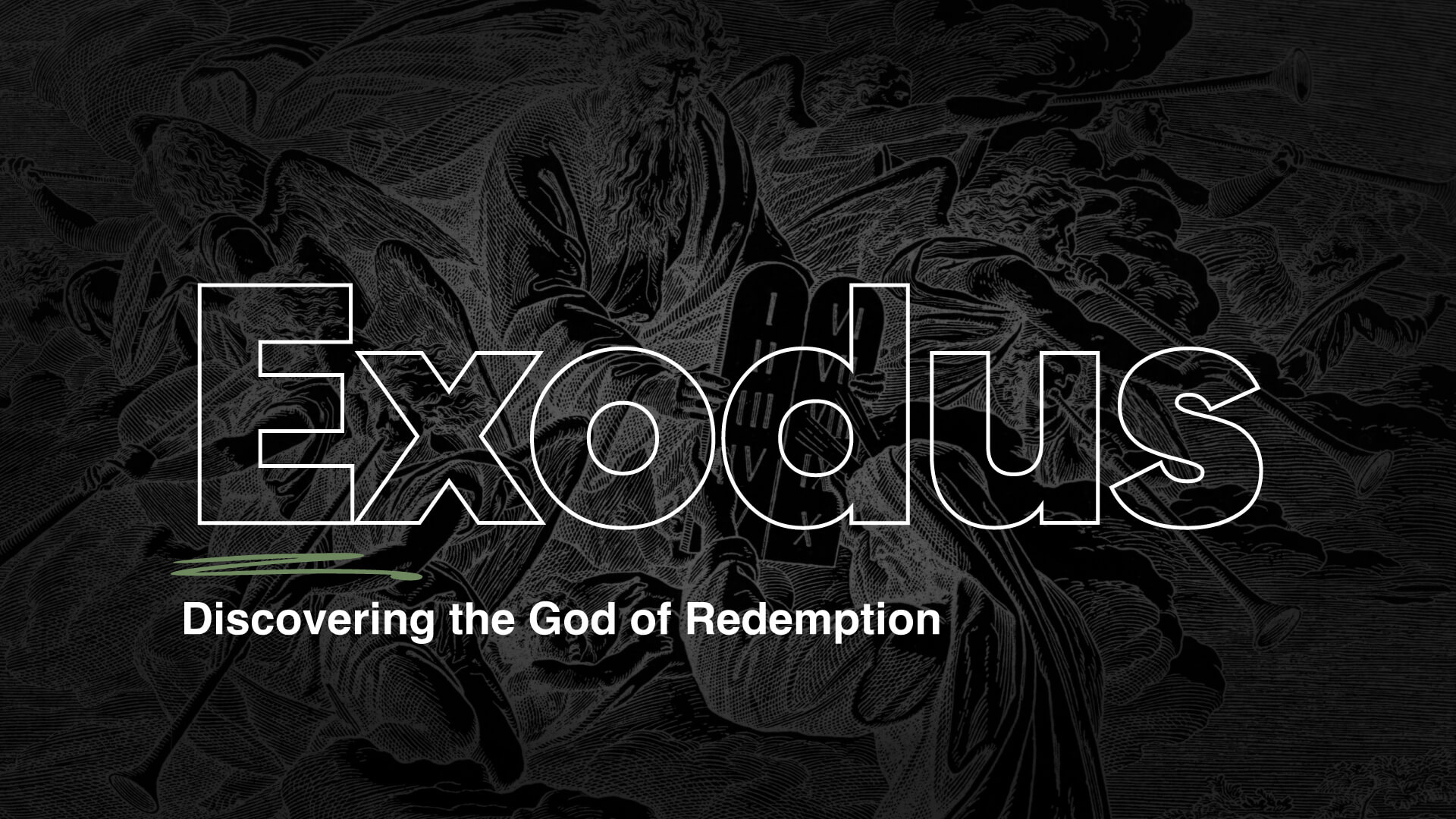
Welcome,
We’re delighted you’ve chosen to dig more deeply into the Scriptures and consider what God has for you through this sermon.
These sermon practices are ideally intended to be discussed with others, so find a friend, family member, or roommate to join you. If you haven’t yet joined a life group yet, check out our groups page or stop at the Welcome Center for more info.
EXPLORING SCRIPTURE: Review
To keep the context fresh in our minds, we’re going to review some learnings from last week before we continue reading in Exodus 1. Context is an important part of any passage of scripture, and especially helpful when studying the stories of the Old Testament.
Read aloud Exodus 1:1-7, then read Genesis 1:26-28 & Genesis 12:1-6
In these opening verses we find a small clan of Hebrews who moved to Egypt due to a famine in the Israelite homelands of Canaan (later known as the land of Israel.) They are all related as sons of Jacob, who also goes by the name Israel. Of course, Joseph was already in Egypt as he had been for decades.
- Which phrases in Exodus 1:1-7 echo the Genesis passages you read?
Through Abraham, God said to all the Israelites, “I will bless those who bless you and curse those who curse you.” We see this play out in Egypt with Jacob’s family. After much strife and conflict, Jacob’s son Joseph became a trusted advisor to the reigning Pharaoh, who allowed Jacob’s family to live in Egypt and escape the famine plaguing their homeland.
- How did the Pharaoh of Joseph’s time bless Israel? And what happened as a result for Egypt? (hint - read Genesis 41:15-36)
EXPLORING SCRIPTURE: The Evil King
Read aloud Exodus 1:8-11
A pharaoh (aka a “king”) came to power generations after Joseph was gone. The new pharaoh was threatened by the massive population of the Israelites and so he devised a plan to oppress them. Notice that his speech to the Egyptian people swayed them to join the plan of oppression.
- Why do you think it is noted that Joseph “meant nothing” to the new pharoah?
- What happens when a person means nothing to another person?
- And how do you see this played out in verse 8-11?
Read aloud Exodus 1:12
God had promised to bless the Israelites and he did. Despite the persecution, they grew in population and in endurance.
- What do you think the author is trying to tell us about dealing with oppression?
Read aloud Exodus 1:13-14
- Note every term and phrase that describes the difficulty that the Israelites experienced at the hands of the Egyptians. Then discuss why you think there are so many?
REFLECTION: Learning from an Evil King
The New Pharaoh is a Snake
This passage shows the craftiness of their enemy and Israelite readers would likely see the parallel to satan in the garden of Eden. Genesis 3:1 says, “Now the serpent was more crafty than any of the wild animals the Lord God had made. He said to the woman, “Did God really say, ‘You must not eat from any tree in the garden’?” He used well-crafted words to undermine God’s words and make Eve question her trust in Him.
In a similar fashion, Pharaoh used well-crafted speeches to turn his people against the Isrealites. He essentially got them to “other” the Isrealites, making them something separate and different from the Egyptians, so that it was easier to justify diminishing them and using them.
- How have you experienced this in your own life? Who has tried to “other” you, diminish you, or use you. How did it make you feel? How did it impact your life? How does God look at this oppressive behavior?
- Have you ever met anyone who surprised you because they weren’t as different from you as you expected them to be? What was that interaction/relationship like?
Missing the Blessing
The new king was threatened by the Isralites. He has a choice to make: Will I bless these strangers, or will I curse them? Out of fear and insecurity, he chose to curse them and as a result he cursed his own life. Not only did he bring pain and suffering onto his people, he also missed out on the blessings that the previous Pharaoh enjoyed. This is where we get the principle: Be a blessing to others or you’ll curse yourself.
- How do you hope you are a blessing to others?
- What happens when you are more of a burden than a blessing to others? How does that impact them? How does that impact you?
- Who is one person that you want to bless this week? How could you specifically be a blessing to them? What do you need from God, in order to be that blessing to them?
Wrapping Up
Discuss your desires for growth through this sermon series study of Exodus. Pray for each other that you would download more Scripture into your head & absorb more of God’s word into your heart. Pray the Holy Spirit will guide your prayers to trust Jesus, and to experience his presence, more everyday.
